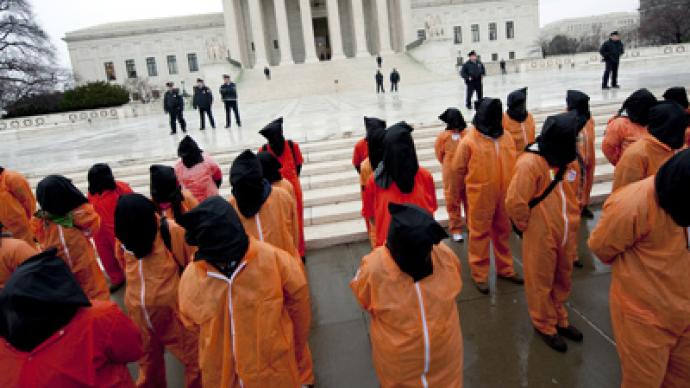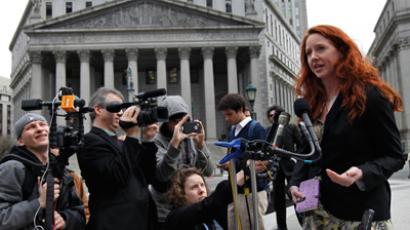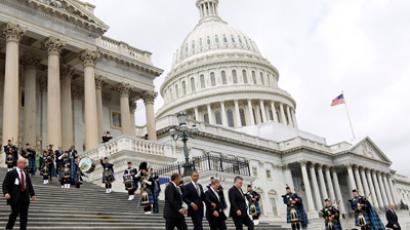Court upholds NDAA; stay extended on indefinite detention injunction

A federal appeals court has extended a stay on the injunction blocking the notorious indefinite detention provision in the 2012 defense bill that lets the US government jail any American without end over even suspected terrorist ties.
This comes as attorneys for the White House fight to lift the order imposed by a federal judge last month that made permanent an injunction on a statute of the National Defense Authorization Act, or NDAA. On Tuesday, an appeals panel weighed in to offer the latest installment in the Hedges v Obama saga and agreed to side with the White House.President Barack Obama signed the NDAA into law late last year, and the now infamous provision that allows for indefinite detention of US citizens without trial — Section 1021 — was challenged in court shortly thereafter by a team of plaintiffs led by former New York Times journalist Chris Hedges.The Obama administration insists that the indefinite detention provisions of the legislation are necessary for the safety and security of the nation, a claim that Hedges and his colleagues have condemned whole-heartedly in the ten months since the NDA went on the books. Journalists and human rights activists insist that Section 1021 actually allows the government to label any American citizen as a suspected terrorist and then treat them accordingly. "We conclude that the public interest weighs in favor of granting the government's motion for a stay," Appeals Court Judges Denny Chin, Raymond Lohier and Christopher Droney — all appointed by President Obama — wrote in a three-page order that also expedited the appeal. POLITICO obtained the motion on Tuesday (.pdf).“Upon due consideration, it is hereby ORDERED that the government's motion is GRANTED.” The order by appeals court comes after Judge Lohier temporarily blocked Judge Forrest’s decision, using a so-called administrative stay on September 17.The appeals court judges argue against the fears of Hedges and his co-plaintiffs, decision that in its motion the US government “clarifies unequivocally that, 'based on their stated activities,' plaintiffs, 'journalists and activists[,] . . . are in no danger whatsoever of ever being captured and detained by the US military.’”They also stated, “the statute does not affect the existing rights of United States citizens or other individuals arrested in the United States.” In May, Judge Forrest ruled Section 1021 of the NDAA failed to “pass constitutional muster” and ordered a temporary injunction.In its original form, the NDAA allows the military hold anyone accused of having "substantially supported" al-Qaeda, the Taliban or "associated forces" until "the end of hostilities” and indefinitely imprison anyone who commits a “belligerent act” against the United States, yet fails to explicitly define what is constituted as such. In her injunction, Judge Forrest said, "In the face of what could be indeterminate military detention, due process requires more.”"An individual could run the risk of substantially supporting or directly supporting an associated force without even being aware that he or she was doing so,” Judge Forrest ruled. During both a question-and-answer session on Reddit.com last week and during a recent appearance at a Bradley Manning fundraiser in Washington, Mr. Hedges expressed fear over his personal assumption that the Obama administration is already using the NDAA to hold Americans without trial. Because of the White House’s relentless legal fight to keep Section 1021 on the books, Hedges say, he fears that American-Pakistani dual-citizens could already be behind bars without charge. Plaintiffs and their attorneys say they intend on taking the case to the Supreme Court.














